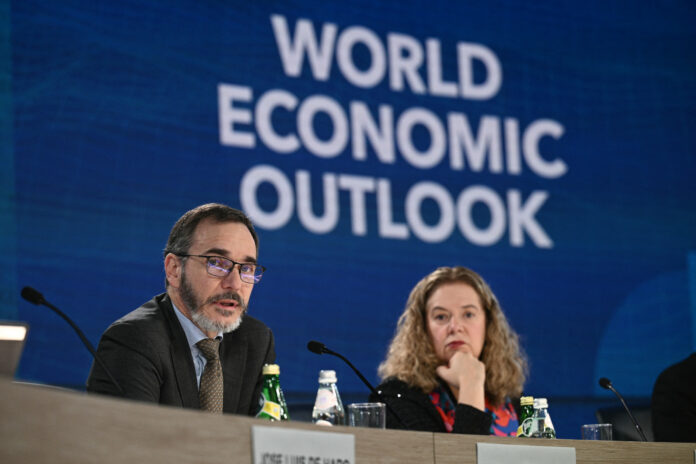The IMF’s chief economist, Pierre-Olivier Gourinchas, announced that “the battle against inflation is almost won,” as inflation rates decline.
Many countries are nearing central bank targets for inflation, with the IMF projecting a drop from 6.7% in 2023 to 5.8% this year, and further to 4.3% by 2025.
While lower interest rates are beneficial, concerns remain about government deficits affecting growth potential.

Brendan SMIALOWSKI / AFP/Getty Images
The IMF indicated that inflation is decreasing faster in advanced economies, allowing some central banks to ease. By 2025, inflation in wealthy nations may fall to around 2%.
Despite encouraging inflation prospects, global growth could slightly drop from 3.3% last year to 3.2% in 2024, lower than the pre-pandemic average of 3.8%.
The U.S. economy is expected to grow by 2.8% in 2024, slightly better than prior forecasts due to rising consumer spending, but is projected to slow to 2.2% in 2025 amidst possible government spending cuts.
Challenges like reduced immigration may also hinder growth and exacerbate labor shortages, alongside geopolitical tensions impacting trade.
China’s economy is likely to slow as well, dropping from 5.2% growth last year to about 4.5% by 2025, mainly due to struggles in the housing market and consumer spending.
In Europe, the economic outlook remains poor, with the eurozone expected to grow just 0.8% in 2024, while Germany faces zero growth amid manufacturing declines.
Despite concerns over trade tensions, global trade volumes are predicted to rise in the coming years.
This article includes reporting from The Associated Press.

